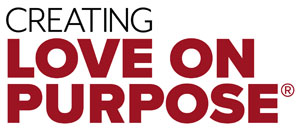Is Conflict With Your Soulmate A Red Flag Or Do All Relationships Experience Power Struggles?
Do you think you’ll never have a conflict with your soulmate? Do you worry that an argument is a red flag and that your relationship is doomed? How do you know if the arguments you’re having are a big issue, or if you can navigate the power struggle stage and create a deeper connection with your soulmate?
It’s easy to imagine that when you’re with your soulmate you’ll always get along and never have conflicts. Unfortunately, that’s a fantasy because no matter who you choose to partner with you’ll experience disagreements and misunderstandings.
While conflict is not a red flag all by itself, it can reveal red flags that you’ll want to pay attention to. That’s why it’s so important to take things slowly through the dating process before making a long-term commitment.
A soulmate is a person you can count on to prioritize your relationship regardless of conflicts that arise — ultimately they know you’re better together than apart. If you iron out all the conflicts while you’re dating then you’ll have no idea if the relationship can sustain the bumpy roads of sharing a lifetime together.
The question isn’t whether you’re going to have a disagreement or a fight with your soulmate. The question is: How do you each behave when you do?
Not All Conflicts Are Created Equal
There are disagreements that can be discussed calmly, and then there are conflicts that have the potential to blow up into a fight. So, what’s the difference?
It all depends on how resourceful you are at the time of the clash, and if the conflict triggers an old wound within one or both of you.
Stress makes everyone less resourceful. Whether you didn’t sleep well, have a deadline at work, or feel anxious about life, you’re not at your best when under duress. When you’re not at your best, you’re less likely to be able to stay calm and present during a disagreement.
When you’re grounded, present, and feeling positive, you’re more likely to be open to your partner and not take things personally.
Sometimes the nature of the conflict triggers a wound that isn’t about the person in front of you. It’s triggering a wound from your past. The key is to be able to recognize and acknowledge when your wounds are triggered and not blame your partner for hurtful actions of someone else in your past.
Your mind is designed to batch situations together and jump to conclusions, linking things together that are not necessarily the same. Through the Law of Association, your subconscious quickly categorizes experiences and says, “this is like that.” This makes it easy for you to mistake your partner’s intentions and get triggered into past hurts.
Red flags have nothing to do with a person’s resourcefulness overall, as every person will vacillate in their ability to be present and grounded throughout the day.
What Happens When You’re Triggered?
When you become triggered, you’re instantly less resourceful. That’s because you’re no longer thinking calmly or logically. You’re triggered into a fight/flight/freeze response and your big prefrontal cortex goes offline (like when your computer is no longer connected to the Wi-Fi signal).
When triggered your focus narrows and you become unable to think clearly about the situation. Your habitual strategies for survival kick in. You may even perceive your partner’s behavior as a threat to your own safety.
In this state you’re no longer the mature, centered adult you believe yourself to be. Instead, you’re reacting from a wounded place and can potentially lash out or retreat looking for a way to feel safe or in control.
The irony is that when you’re triggered, you’re most likely to say and do things that can cause damage to the relationship. Being triggered is not a red flag that your relationship can’t survive, it’s part of being human. It’s the part of you that is wired in for your own survival, so it’s better to make peace with it and understand its purpose.
You don’t want to fall into the trap of judging yourself, or your partner, for getting triggered. The key is to recognize when you are triggered and to calm your own nervous system.
Conflict Isn’t A Red Flag, But What Happens After May Be
Conflict is unavoidable, even in a soulmate relationship. However, you both have a choice in how to handle your differences and how you clean up any emotional messes.
Use dating as an opportunity to discover any possible red flags so you can better determine if this person is a good match for you. Pay attention to how your date behaves during and after a conflict or disagreement. Evaluate if they are capable of taking responsibility for their behavior and apologizing when needed.
It’s unfortunate but not unforgivable if either of you behaves badly when you’re triggered. If that bad behavior isn’t owned or cleaned up, then there may be a red flag that must be examined. Conflicts that aren’t repaired become the cracks that ultimately lead to the end of many relationships.
Don’t focus on avoiding conflict. Being in a cold war or avoiding conflict leads to harboring resentments and will drive a wedge between you if the two of you cannot find a way to connect, repair, and heal.
You can and should be forgiving when your partner gets triggered during a conflict. However, if your partner continues to double down on their choices instead of seeking to resolve your differences, then you’ll want to evaluate the potential of the relationship.
Dating Red Flags You Can Spot Due To Conflict
-
Your Partner Denies Your Feelings Or Experiences
Contradicting your feelings or your point of view is not only disrespectful but is also a sign of gaslighting. Assess if your partner can acknowledge your feelings. If they try to convince you that your feelings aren’t valid it may be a sign to move on.
-
Your Partner Gets Defensive Or Doesn’t Take Responsibility
Many people have an initial defensive reaction to conflict, and this is normal human behavior. If your partner refuses to take responsibility for their mistakes or bad behavior when triggered, then this is a serious red flag that cannot be ignored. If they blame you for everything that goes wrong, or your partner has a pattern of making excuses this is a valid reason to end the relationship. An ideal life partner will take responsibility for their actions and offer amends when warranted.
-
Your Partner Refuses To Budge On Their Position
If your partner is chronically stubborn and refuses to budge, then you’ll be in a constant power struggle. If you’re the one that must always compromise or give in, you’ll end up feeling resentful over time. In a soulmate relationship there is a balance of give and take, and working things out doesn’t mean that you’re the only one coming to the table with a compromise.
-
Your Partner Disrespects You And Your Choices
Disrespect is a relationship killer and this red flag should not be ignored. You want to be loved and accepted as who you really are. If your partner doesn’t respect you or your choices, then you’ll never feel loved and accepted. A relationship that has you walking on eggshells isn’t worth keeping.
-
Your Partner Stonewalls You
It’s impossible to resolve your issues if you can never talk about them. Stonewalling or ignoring issues won’t make them go away, instead there’ll be landmines buried in the relationship that can blow up at any time. Taking time to cool off is appropriate, but if you never repair and reconnect after a conflict you will grow apart rather than together.
-
Your Partner Agrees To Change But Doesn’t Follow Through
Avoiding conflict by agreeing to something without any intention to follow through is a huge red flag that the relationship is on the rocks. This passive-aggressive behavior will create mistrust as you’ll be unsure if your partner can honor their word.
-
Your Partner Focuses On Your Flaws But Ignores Their Own
Being in a relationship with someone who is critical of you and who constantly points out your flaws can destroy your self-esteem. This is especially insidious when your partner refuses to look at their own faults. Partner with someone who lifts you up, not someone who tries to tear you down.
Turning A Conflict Into A Deeper Connection
Being with your soulmate doesn’t mean that you won’t ever be triggered or behave badly when there’s a conflict. Conflict in and of itself isn’t a red flag. In fact, in a soulmate relationship, you’ll turn your conflicts into a deeper connection and heal each other’s wounds from the past.
Mastering this skill can turn an ordinary relationship into a soul-satisfying and long-lasting one. Here are the top skills necessary to transform conflict so you two can grow together rather than apart:
-
Calm Yourself Down First
If you’re triggered, nothing productive can happen until you calm yourself down. This isn’t your partner’s responsibility. Your ability to calm yourself shouldn’t be dependent on your partner’s actions. It’s up to you to get your nervous system back online.
Request that the two of you take a break from the conflict. Sit or lie down. Place your hand on your chest or on your navel. Breathe slowly in and out until you begin to feel your body and mind calming down. Once you are present, grounded, and calm, you can go back to your partner and begin to repair.
-
Stay In Curiosity
Do your best to have an open mind and not jump to conclusions about your partner’s behavior. When you’re curious about your partner you’re less focused on your own hurt and anger, plus you’re open to discovering their point of view and their feelings.
Listen and resist the urge to interrupt, explain, or defend yourself. If you’re creating a reply in your mind then you’re not really listening, so be sure to listen with curiosity and compassion. A conflict doesn’t make your partner an enemy.
-
Take Responsibility For Your 50%
Without responsibility, there can be no real healing. You’ll want to take 100% responsibility for your thoughts, your feelings, and your actions. However, resist all urges to take responsibility for your partner’s thoughts, feelings, and actions.
Keep your side of the street clean and avoid trying to clean up the other side of the street. You aren’t responsible for your partner. You’re responsible only for yourself.
-
Communicate Authentically
Communicating authentically means you can identify how you feel and express it, ideally using “I” statements and not “you” statements. Focus on sharing how you feel without providing your opinion of your partner’s actions. Authenticity has a high vibration and when you communicate authentically you invite your partner to meet you at a high level of authenticity.
When you’re both willing to be authentic you can create emotional intimacy and connection — this is your soul’s truest desire.

-
Have Compassion For You And Your Partner’s Triggers
All human beings get triggered. Everyone has their own strategies for dealing with being triggered. It’s most important to have compassion for yourself and your partner when either one of you gets triggered because compassion allows you to stay out of judgement.
Giving yourself and your partner the space to be human by allowing triggers to occur is one of the most healing gifts of a soulmate relationship.
-
Intimacy Doesn’t Require Agreement
Conflicts often arise because you are disconnected from either yourself or your partner. This disconnection can create misunderstandings and can be triggering. Restoring intimacy and connection doesn’t require agreement.
Agreement is an ego desire, and it keeps you in the power struggle of arguing about who is right and who is wrong. When the two of you are emotionally connected it’s likely you’ll find the conflict itself is insignificant.
-
Ask For Or Offer Amends
Sometimes things happen in an argument that you later regret, or your partner behaves in a way that is hurtful, or maybe an agreement between the two of you is broken. Repairing this kind of clash requires more than just an apology, you may need to make or ask for amends.
Amends is a way of expressing, “I messed up and I regret my behavior. I’d like to make it up to you to show you how much you mean to me.” Amends can be a powerful tool for forgiveness and for creating a lasting bond because by making amends you are letting your partner know how important they are to you.
-
Clean As You Go
One of the least useful phrases about conflict in a relationship is to “pick your battles.” You’re not at war with your partner and keeping things to yourself builds anger and resentment. Instead, clean as you go. Clean up the little misunderstandings and the minor annoyances before they become something bigger that can blow up like a volcano.
Nothing compares to being in a soulmate relationship with a person who loves, respects, and accepts you enough to take the uncomfortable steps of repairing a conflict and creating a stronger bond.
-
Leave The Past Behind You
Following these steps allows you to let go of the conflicts that arise and leave them behind preventing you from keeping score or developing anger and resentment. Holding onto hurts and resentments will ultimately create more conflict and disconnection. Say what you need to say and then let it go.
To discover the potential for a soulmate relationship, pay attention to red flags when there’s conflict before making a commitment. Evaluate your partner’s behavior when things don’t go smoothly so you can evaluate their capacity to repair and reconnect.
Never ignore red flags, particularly those that arise with conflict. Every relationship begins with a Romance Stage where it seems like you’re just magically made for one another. The second stage of relationship is the hangover from the Romance Stage: The Power Struggle Stage.
No couple skips the power struggle, so it’s important to date like a grownup and practice the skillset for lasting love through the dating process BEFORE making a commitment.
A soulmate relationship is not free from conflict, instead, it’s a relationship where you can count on one another because you are bonded together in the knowledge that you’re better together than apart.
If you are looking for more tools to navigate through all five stages of a relationship, download our free guide: The 5 Stages Of Relationship. You’ll get a map to move past the power struggle to create a lasting partnership filled with co-creation and bliss.
About the authors

Orna and Matthew Walters are soulmate coaches and prolific writers about love. Finding love, keeping love, healing from heartbreak, bringing in your beloved and more. They have been published on MSN, Yahoo!, YourTango, Redbook, and have been featured guest experts on BRAVO’s THE MILLIONAIRE MATCHMAKER with Patti Stanger, and as guests with Esther Perel speaking about love and intimacy.





